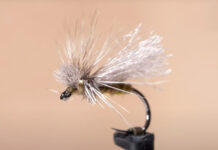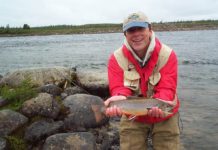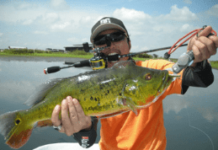It has been said that 90 percent of the fish are caught by 10 percent of the fishermen. I have no doubt that this is true, because I have made many mistakes that have cost me fish, and I see other anglers make mistakes on a continuing basis as well.
Just this week, I saw a post on a fishing site from an angler who went to a lot of trouble and expense to fish offshore. He ran out to the inshore lumps, and when he had no luck there, he trolled on out to the canyons. The biggest problem he had was he didn’t put lines in the water until 11 a.m. That’s at least six hours too late. The predawn hours are the time to be trolling for tuna. As the sun gets up, the fish go down, and that makes them harder to catch by pulling lures on the surface.
If you really want to catch fish, you have to be willing to get up before dawn and get out on the water. This is the time of day when fish are going to be actively feeding and boat traffic will be light. You will also avoid most of the summer thunderstorms that come up in the afternoon.
Another common mistake I see is poor knot tying. Just about anytime I pick up a sinker or lure that has been busted off the angler’s line, the knot is a one-off creation. Triple granny knots just don’t work.
You need to master the improved clinch knot, the perfection loop, the surgeon’s loop and the Albright knot. These will see you through 90 percent of your fishing situations. That is, unless you decide to take up fly fishing. In that case, you will spend more time tying knots and discussing which fly to use than actually fishing.
There are several good knot-tying books available, but in today’s world you can learn the knots online. There are step-by-step instructions available at the click of a mouse.
Proper use of a circle hook is also important. I have been guilty of this offense because I tried to hide the barb with my bait. This is wrong. The bait must sit in the curve of a circle hook so the hook can slide along the inside of the mouth and catch in the corner. If you cover the hook with bait, it can get into the gut and may stay there.
Trying to fish with the wrong tackle is another mistake I often see. There is not a single outfit that will work for flounder fishing at Indian River Bay and the Old Grounds. You are going to have to shoot the lock off your wallet and buy two outfits.
Indian River Bay seldom requires more than one or two ounces of weight, while the Old Grounds may require as much as nine or 10 ounces. To the best of my knowledge, no one makes an outfit that carries a rating of one to 10 ounces. Your shallow-water rig should be rated for one to four ounces, while the deep-water outfit should be rated for six to 10 ounces. I would recommend braided line for both.
Putting your rod in a sand spike or rod holder is another mistake we all make. I promise you will catch more fish if you hold the rod with your hand on the line so you can feel the slightest bite. This is true in the surf as well as on a boat.
When surf fishing, I use two rods. One carries a tongue sinker and I do keep it in the sand spike. The other carries a bank sinker so it rolls across the bottom. This one I hold in my hand. I catch a lot more fish on the hand-held rod.
When fishing from a boat, you can feel what type of bottom you are over by the information sent up through the line. You will know when to raise the rig to keep it out of snags and when a fish picks up the bait.
Changing your bait on a regular basis is another very important procedure. Fresh bait needs to be changed at least every 10 to 15 minutes. Artificial bait such as Fishbites and Gulp! also loses its potency once it’s in the water. Take the Gulp! off and put it back in the container, and it will recharge. Fishbites dissolve in the water, leaving a net-like cloth behind. Here, too, 10 to 15 minutes will be long enough before making a change.
Always buy the fresh bait. If the tackle shop has fresh spot and frozen bunker, get the fresh spot.
Become more involved in the fishing, and you will catch more fish.
Credit: Source link





























